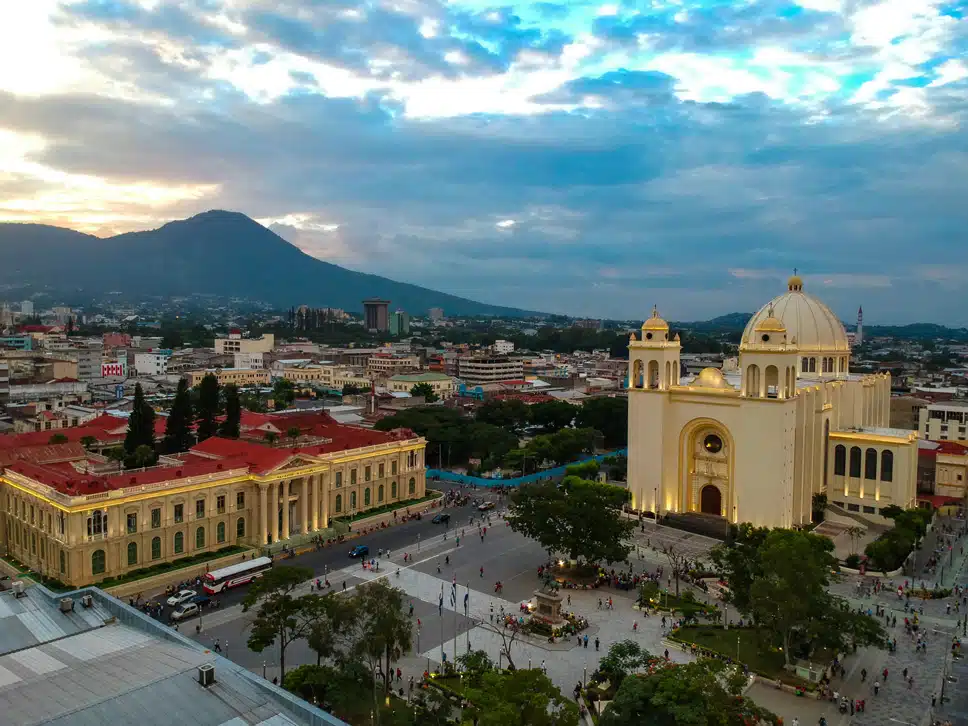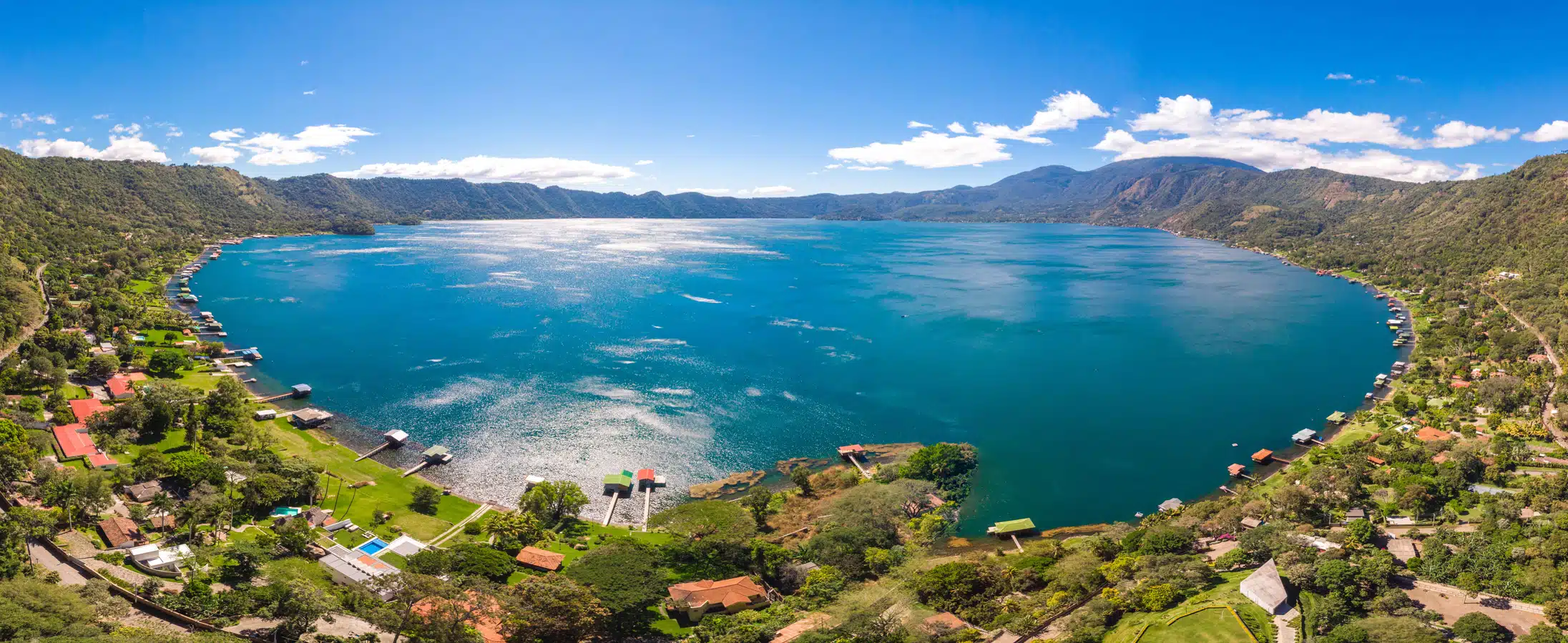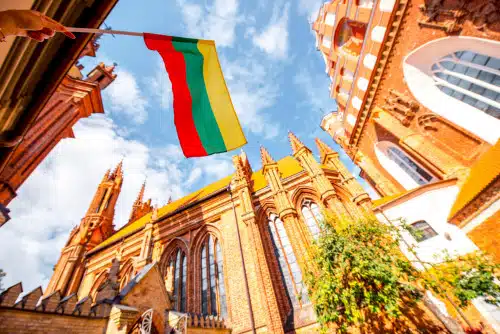As the world’s first nation to adopt Bitcoin as legal tender, El Salvador offers a groundbreaking regulatory environment for cryptocurrency businesses. Whether you are an established enterprise or a startup venturing into the dynamic world of digital finance, securing a Crypto License in El Salvador opens up unparalleled opportunities for growth and innovation.
Our expert team is dedicated to guiding you through every step of the licensing process. We provide tailored advice and support, ensuring compliance with all local regulations and helping you navigate the unique challenges of the El Salvador crypto industry. With our extensive experience and in-depth knowledge, we simplify the complexities of obtaining your El Salvador Crypto License, empowering you to focus on your core business objectives

Regulations for Crypto license in El Salvador
The primary regulatory body overseeing cryptocurrency activities in El Salvador is the Central Reserve Bank (Banco Central de Reserva – BCR) and the Financial System Supervisory Authority (Superintendencia del Sistema Financiero – SSF). Commission for Digital Assets (Comisión Nacional de Activos Digitales, CNAD) is regulatory body for registration of service providers involved in activities related to other cryptocurrencies, known as Digital Asset Service Providers (DASP). These institutions are responsible for ensuring that cryptocurrency operations comply with national and international financial regulations.
In June 2021, El Salvador made history by passing the Bitcoin Law, which grants Bitcoin the status of legal tender alongside the US dollar. This law mandates that all economic agents must accept Bitcoin as a form of payment for goods and services, and it can be used for tax contributions. Businesses and individuals can use digital wallets to store and transact in Bitcoin. The government has introduced its own wallet, Chivo, which offers incentives such as a $30 Bitcoin bonus to encourage adoption.
The government has established mechanisms to protect consumers from fraud and ensure transparency in cryptocurrency transactions. This includes clear disclosure of fees and risks associated with Bitcoin transactions. To ensure stable working conditions companies dealing with cryptocurrencies must adhere to strict regulations in Compliance and AML/KYC/CFT Policies, including verifying the identity of customers and monitoring transactions of suspicious activity.
Taxation of cryptocurrency companies in El Salvador
Bitcoin transactions are subject to the same tax regulations as other forms of currency. Profits derived from Bitcoin trading and transactions are taxable, and businesses must maintain accurate records for tax reporting purposes.
- Corporate income tax: 0% , crypto companies are exempt from taxes if operating outside the country, whereas other common types of companies are subject to a 30% tax rate.
- Value added tax (VAT): 13%, crypto companies are VAT exempt.
Types of crypto licensing in El Salvador
El Salvador offers two primary types of crypto licenses for businesses operating in the cryptocurrency sector. These licenses are designed to regulate and promote the safe and legal use of cryptocurrencies within the country:
| License type | Description of license |
|---|---|
| Bitcoin Service Provider (BSP) License |
|
| Digital Asset Service Provider License |
|
With crypto license in El Salvador you can provide following services:
- Exchange Services: Facilitate the conversion of digital assets into fiat currency or other digital assets, utilizing either their own capital or that of third parties.
- Trading Platforms: Operate platforms dedicated to the exchange or trading of digital assets and their derivatives.
- Risk and Pricing Assessment: Evaluate the risk and determine the pricing of digital assets, and underwrite their issuance.
- Placement Services: Manage the placement of digital assets on digital platforms or in digital wallets.
- Investment Management: Promote, structure, and manage various investment products in digital assets, including loans, mutual funds, or other forms of financing involving digital assets.
- Third-Party Operations: Execute the following activities on behalf of third parties: Asset Transfer, Custody services, Order Management, Order Execution.
Overview of requirements to obtain crypto license in El Salvador
- Register “S.A. de C.V.” (Limited Liability Corporation) and obtain crypto license
- Minimum of 2 shareholders in structure of the company (can be foreigners)
- Detailed business plan and financial forecast
- Provision of detailed description of organization structure
- Provision of Cybersecurity measures
- Tailored AML/KYC/CFT Policy
- Minimum share capital 2000 USD (minimum of 5% paid at incorporation, the rest till the end of year)
- Register certificated Compliance Officer
Estimated time frames to obtain crypto license in El Salvador
Business name verification
1-2 days
Company formation
1-2 weeks
Documents preparation
2 weeks
Depositing and registering share capital
1 week
Crypto license obtainment from CNAD
2 months*
* The timeline also depends on the workload of CNAD and any clarifications and queries that CNAD may request in relation to the application
Legal services for obtaining Crypto license in El Salvador
Basic Package
11900USD initial set up
- Turnkey company formation
- Legal Address for 1 year
- Corporate documents
- Standard AML/KYC/CFT Policy
- Submission of application to Banco Central de Reserva de El Salvador (BSP) or Comisión Nacional De Activos Digitales (DASP)
- BSP/DASP License obtainment
- Communication with regulator authorities
- Assistance with employment of AML officer
- Legal Support throughout the entire project
This package meets the minimum regulatory requirements for establishing a licensed crypto company
Additional services on request
- Opening bank account
- Accounting services
- Tailored AML/KYC Policy
- Apostilled corporate documents
- Lease agreement for local office (sub-rent)
- Provision of AML officer, Compliance officer and other necessary employees
- Legal framework for launching Your Token
Ready-Made solution
available on request
- Registered company
- Legal address for 1 year
- No debts, no liabilities – clean company
- Active Bitcoin service provider license (BSP)
- Active Digital Asset Service Providers license (DASP)
- Corporate documents
- Assistance with transfer of ownership

Eriks Fijalovs
Head of Blockchain and Crypto
Requirements for Crypto licensing in El Salvador
List of required documents
- Passport and proof of address: Copy of credentials of Board of Members or Sole Administration, as registered in the Commercial Registry.
- Power Of Attorney: Public document authorised by public notary that will allow us as a company to act on behalf of another company or individual to carry certain activities in order to incorporate company and obtain a crypto license in El Salvador.
- AML/KYC/CFT Policy: Anti-Money Laundering (AML), Know Your Customer (KYC) and Countering the Financing of Terrorism (CFT), the process involves a crypto company confirming its clients’ identities, evaluating the potential for illegal intentions in the business relationship, and actively working to identify, prevent, and report any suspicious activities.
- Application Form: Complete and submit application form to The Central Reserve Bank of El Salvador (Banco Central de Reserva, BCR) for BSP License and to The National Commission for Digital Assets (Comisión Nacional de Activos Digitales, CNAD) for DASP license , describing nature of business, primary and secondary activities, including descriptions of how and where activities and business will be carried out.
- Articles of Association: Legal document prepared during company incorporation, which represents charter of the company.
- Business plan: Provide detailed business plan and financial forecast for 3 years operation. Including description of provided services, markets and customers. Describe organizational structure of the company, including names, positions and tasks.
Share Capital and Government Fees
- Minimum Share Capital: Minimum share capital 2000 USD (deposit 5% during incorporation, and the rest within 1 year).
- Government Fees: Bitcoin Service Providers and Digital Asset Service Providers must pay initial application registration fee, if the resolution (decision) is favourable – 5475 USD. Annual license renewal is paid on first quarter of the calendar year – 3650 USD.
Personnel Requirements
- Shareholders: Minimum of two shareholders.
- Compliance officer: Appoint dedicated compliance officer, responsible for adherence to AML/KYC/CFT.
- Local representative: company must appoint local representative in El Salvador who will communicate with National Digital Assets Commission (NDAC).
Business premises requirements
- To obtain a crypto license in El Salvador, it is not necessary to have a local physical office. A legal address will suffice to start operational activity. However, certain banks may require a virtual office or physical office with a lease agreement. Legalaes can provide this service upon request.
Roadmap of obtaining crypto exchange license in El Salvador
For more detailed road map of the project and commercial offer – get in touch with our crypto professional.

Eriks Fijalovs
Head of Blockchain and Crypto
Gathering Documentation
Collection of necessary documentation for the company formation process, including a notarized and apostilled Power of Attorney (PoA) if shareholders are foreigners and cannot attend the signing in El Salvador.
Verification of the chosen company name’s availability in the Commercial Registry of El Salvador.
Definition of the company’s purpose, main business activity, and domicile.
Selection of shareholders and directors (minimum of 1 director and 2 shareholders, who can be Salvadorans or foreigners).
Incorporation as “S.A. de C.V.” (Limited Liability Corporation).
Registration with Public Authorities
Appointment of a legal representative and obtaining the Salvadoran Tax Identification Number (NIT) for shareholders from the Ministry of Finance. Securing a Municipality Tax Clearance Certificate from the Ministry of Labor and the Salvadorian Social Security Institute. Registration of the Articles of Incorporation with the Ministry of Finance within 15 days.
Opening Bank Account and Registering Share Capital
Choosing a suitable banking option by analyzing business needs and collecting necessary corporate documentation. Filling out the bank application, paying the bank account opening fee, and depositing a minimum of 5% ($100) of the required $2000 share capital, with the remaining amount to be deposited within a year. Registration of the share capital at a notary.
Documents preparation for crypto license obtainment in El Salvador
Preparation of tailored AML/KYC/CFT policies for your business model, ensuring compliance with FATF El Salvador guidelines. Development of a detailed cybersecurity program, business plan, and financial forecast for three years, including descriptions of the provided services and organizational structure with names, positions, and specific functions.
Submission application for Bitcoin Service Provider (BSP) License
Gathering of necessary documents, listing the company in the Registry of BTC Service Providers with Banco Central de Reserva, appointment of certified compliance officers residing in El Salvador, and registration with the Central Reserve Bank of El Salvador (BCR) to receive a Certificate of Registration.
Submission application for Digital Asset Service Providers (DASP) License
Pre-registration with the National Commission for Digital Assets (CNAD), undergoing assessments, and providing additional information as requested. Upon receiving a favorable resolution, proceeding with the initial payment registration fee.
Operational Launch
Marking the commencement of operations within the Salvadoran regulatory framework by providing ongoing support in accounting services, drafting agreements and policies, opening additional bank accounts, offering legal opinions and support, HR services, tax consulting, and ensuring compliance monitoring and regulatory reporting to adhere to guidelines set by the Central Reserve Bank of El Salvador (BCR) and the National Commission for Digital Assets (CNAD).
Advantages of the Crypto license in El Salvador
01
Local and International License
An El Salvador crypto license permits the provision of services both in the local market and globally, enabling businesses to operate on an international scale.
02
High Cybersecurity Measures
The license ensures robust cybersecurity measures, reducing the risks of potential fraud and illegal activities while protecting data security, digital stores, and wallets.
03
Tax Benefits
El Salvador offers attractive tax incentives for crypto businesses, including exemptions from capital gains tax on Bitcoin, enhancing profitability.
04
Regulatory Clarity
El Salvador provides clear and well-defined regulations for cryptocurrency operations, ensuring businesses can operate without uncertainty.
05
Banking Integration
Licensed crypto businesses in El Salvador benefit from better integration with the traditional banking system, facilitating smoother transactions and operations.
06
Government Support
The Salvadoran government actively supports cryptocurrency initiatives, providing a conducive environment for the growth and development of crypto enterprises.
Links for legislation related to Crypto business in El Salvador
The Central Reserve Bank of El Salvador is the principal authority overseeing monetary policy, financial stability, and the regulatory framework for financial institutions, including those dealing with digital assets. The BCR ensures the alignment of crypto-related activities with national economic goals, supervises compliance with financial regulations, and facilitates the integration of digital currencies into the broader financial system.
The Registry of Digital Asset Service Providers in El Salvador is regulated by the National Commission of Digital Assets (CNAD). This registry maintains a comprehensive list of all authorized VASPs, ensuring they meet the regulatory requirements set forth by the CNAD. The Commission oversees the registration process, conducts regular audits, and ensures continuous compliance with established standards to foster a transparent and secure digital asset ecosystem.
The Financial System Supervisory Authority of El Salvador is responsible for the oversight and regulation of the financial sector, including banks, insurance companies, and Virtual Asset Service Providers (VASPs). The SSF ensures that all entities comply with legal standards for financial operations, anti-money laundering (AML), and counter-terrorism financing (CTF) measures. It plays a critical role in maintaining the integrity and stability of the financial system by monitoring the activities of crypto businesses.
The Law of Issuance of Digital Assets in El Salvador establishes the legal framework for the issuance, distribution, and management of digital assets within the country. This law aims to promote innovation in the financial sector while ensuring robust protection for investors and users of digital assets. It outlines the requirements for issuing digital assets, including disclosure, reporting, and compliance obligations, thereby fostering a regulated and transparent environment for digital asset transactions.
The Hacienda Tax Authority of El Salvador manages the tax obligations for businesses, including those dealing with digital assets. It ensures compliance with tax laws, facilitates tax payments, and provides guidance on tax-related matters for crypto entities.
The Commercial Register of El Salvador maintains the official records of business entities, including crypto businesses. It ensures that all commercial entities are properly registered, providing a transparent and legal framework for business operations in the country.
VII. Ministry of Finance
The Ministry of Finance oversees fiscal policies, public finance management, and economic regulations in El Salvador. It plays a key role in the regulation and integration of digital assets into the financial system, ensuring compliance with economic policies and financial regulations.
The Financial Action Task Force (FATF) provides guidelines for anti-money laundering (AML) and counter-terrorism financing (CTF) in El Salvador. These guidelines ensure that the country’s financial institutions, including those dealing with digital assets, adhere to international standards to prevent financial crimes.

National Commission of Digital Assets of El Salvador
FAQ about Crypto license in El Salvador
1. Who regulates cryptocurrency activities in El Salvador?
The Central Reserve Bank of El Salvador (BCR) regulates Bitcoin-related activities and registers Bitcoin Service Providers (BSPs). The National Commission for Digital Assets (CNAD) oversees the registration and regulation of other cryptocurrency-related activities, known as Digital Asset Service Providers (DASPs).
2. Do I need to have local employees to obtain a crypto license in El Salvador?
While local employees are not strictly required, it is recommended to have local representatives, especially for compliance roles. For instance, a Certified Head of Compliance and a Deputy Head of Compliance, both residing in El Salvador, are necessary for obtaining the license.
3. What is the process for opening a corporate bank account in El Salvador?
To open a corporate bank account, you must provide corporate and shareholder documentation, submit application form, deposit at least 5% of the minimum share capital ($100) at the time of incorporation.
4. What documents are required for the crypto license application?
Required documents include a detailed business plan, AML/KYC policies, cybersecurity procedures, identification documents of shareholders and directors, and proof of residence. Additionally, notarized and apostilled documents such as passports and power of attorney may be required.
5. What are the benefits of obtaining a crypto license in El Salvador?
Licensed crypto companies in El Salvador benefit from significant tax exemptions, including exemptions from capital gains and ordinary income taxes on digital assets. This makes El Salvador a highly attractive jurisdiction for crypto businesses.
6. How long does it take to obtain a crypto license in El Salvador?
The entire process, from company registration to obtaining the crypto license, typically takes between around 3 months, depending on the completeness of the documentation and the responsiveness of the applicant.
7. Can a foreign company apply for a crypto license in El Salvador?
Yes, foreign companies can apply for a crypto license in El Salvador. They must incorporate a subsidiary in El Salvador and fulfill all the local regulatory requirements, including having compliance officers.






